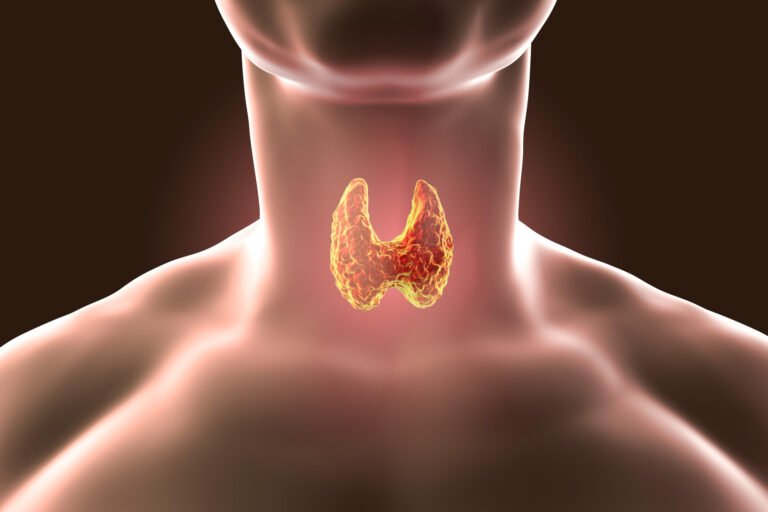A thyroid gland is located below the neck area and is responsible for the production of thyroxin hormones responsible for the metabolism processes inside your body. Thyroid glands, just like any other body part, are subject to diseases and infections arising from different circumstances.
Thyroid glands in the human body utilize iodine, which is mostly ingested in the form of table salt added to our food. Thyroid disorders are a result of the production of insufficient thyroxin, which is medically referred to as hypothyroidism. This disorder can also be as a result of production of too much thyroxin in the body, hyperthyroidism.
Thyroid disorders affect the overall body functions, such as altering your moods and energy levels and changing your heart rate.
In this article, we are going to look at the different types of thyroid disorders and the most effective way of treating each thyroid disorder.
Toxic Diffuse Goiter (Grave’s Disease)
Grave’s disease is a medical condition that develops due to the production of excess thyroxin hormones. Hyperthyroidism causes excess metabolism and hyper-functionality of the general body processes.
Grave’s disease manifests itself through various signs and symptoms, such as increased and irregular heartbeats (often mistaken for high blood pressure), increased sweating, bulging eyes, and a constant feeling of nervousness.
Treating Grave’s disease and hyperthyroidism is usually done by reducing the size of the thyroid glands. The most common and non-invasive method of treating hyperthyroidism is by getting a thyroid radiofrequency ablation in Michigan, a process that utilizes radio waves to generate heat. The endocrinologist will focus the heat on the thyroid glands, shrinking them to the required size depending on the levels of hyperactivity.
Chronic Lymphocytic Thyroiditis (Hashimoto’s Thyroiditis)
Chronic lymphocytic thyroiditis is a condition that occurs when your body’s immune system self-sabotages and starts attacking the thyroid glands in your own body.
Neck swelling is the most common form of thyroid disorder, and is the main cause of Hashimoto’s thyroiditis, which eventually leads to goiter.
Endocrinologists usually prescribe radioactive iodine as a method of thyroid ablation. Synthetic thyroxin can also be swallowed as a pill to help increase metabolism and boost the immune system of your body.
Thyroid Nodules
Small mutated cells may start developing on the thyroid glands, mimicking the functions of the actual thyroid glands. The mutated cells on the thyroid glands are called thyroid nodules. The combined production of thyroxin hormones by the thyroid glands and nodules leads to hyperthyroidism.
Treating thyroid nodules requires surgery or a thyroid ablation procedure. Thyroidectomy—the surgical removal of thyroid nodules—is prescribed when the nodules are more developed. The thyroid glands may also be removed if they are infected, or if they are showing signs of cancerous mutation.
Thyroid radiofrequency ablation (also known as radioactive iodine radiation procedure) is preferred for less developed thyroid nodules, which can be treated by shrinking.
Thyroid Cancer
Thyroid nodule cells, if untreated in time, can mutate into cancerous cells which can further cause thyroid cancer. However, thyroid cancer can also develop as a result of complications from previous radiation treatment close to the thyroid glands, such as head radiation treatments.
Depending on the stage of development, thyroid cancer can be treated using ablation or surgical procedures. Radiofrequency ablation is done during the early stages of thyroid cancer, where the heat produced shrinks the cancer cells and the thyroid glands. For late stages of thyroid cancer, surgery is done to remove the cancer tissue together with the thyroid glands.
Women Hypothyroidism Disorders
There are thyroid disorders that have specific health effects on women. For example, a woman with hypothyroidism will have her reproductive system growth slowed down. Consequently, conceiving will be almost impossible.
Low thyroxin levels in the body of a pregnant woman can lead to the abnormal development of the fetus, and after delivery, the thyroid glands of the woman may also get inflamed. Hypothyroidism in a pregnant woman can be supplemented using thyroxin pills while awaiting a permanent solution, either by surgical or ablation thyroid treatment procedures after delivery.
Conclusion
Luckily, thyroid disorders are treatable. You should get professional medical advice if you experience any thyroid disorder symptoms. With the advancements in medical procedures and technology, treating thyroid disorders in the future will be even more profound.

